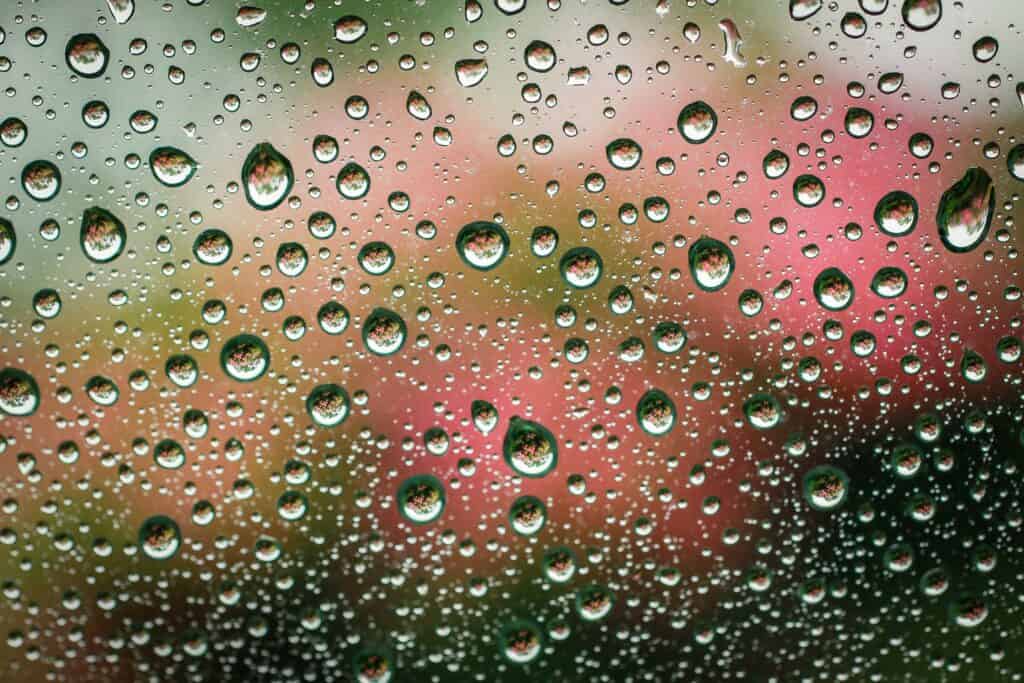Shooting in the rain presents a unique set of challenges and opportunities for firearm enthusiasts. While many shooters might shy away from wet conditions, understanding how to handle and fire your weapon in the rain effectively can significantly enhance your skills and preparedness. Let’s go over helpful tips for shooting in the rain.
Does heavy rain affect bullet trajectory?
Heavy rain can theoretically affect bullet trajectory, but its impact is minimal and often negligible for most practical shooting distances. The primary reason for this minimal impact lies in the dynamics of how a bullet interacts with raindrops.
Speed
Firstly, when considering the bullet’s speed and momentum, it’s important to note that bullets are designed to travel at high velocities and possess significant momentum. This inherent speed and momentum mean the bullet can pass through rain with little deviation in its path. The mass and velocity of the bullet compared to the tiny, lightweight raindrops result in a minimal impact on its trajectory.
Distance
Additionally, the distance over which the bullet fires plays a crucial role. For short to medium-range shooting, the effect of rain on bullet trajectory is typically invisible. Generally, external factors, including wind and environmental conditions, become more influential at longer ranges. However, even at these extended distances, the impact of rain is often overshadowed by other variables.
Raindrops
Another factor to consider is the size of the raindrops themselves. While rain can vary in intensity, the size of individual raindrops is usually too small to alter the path of a bullet significantly. Even in heavy downpours, the rain’s density might not be sufficient to cause a notable deviation in a bullet’s trajectory.
Shooting Adjustments
Lastly, experienced shooters often adjust their shooting techniques to account for various environmental conditions, including rain. These compensations can offset any minor changes in trajectory that might occur due to rain. Skilled shooters are adept at reading conditions and making adjustments to maintain accuracy.
In conclusion, while the physics of a bullet’s journey through rain suggests a potential for trajectory alteration, the actual effect is typically so minor that it doesn’t pose a significant concern in most shooting scenarios. The bullet’s speed, the distance of the shot, the size of the raindrops, and the shooter’s ability to compensate for environmental factors all contribute to minimizing the impact of rain on bullet trajectory.
Are guns waterproof?
Guns are not entirely waterproof and can be susceptible to damage if exposed to moisture over time. While they are built to be durable and can handle some exposure to water, it’s crucial to store them properly to prevent rust and corrosion. A gun safe is an ideal solution for protecting firearms from water damage, as well as from humidity and other environmental factors. Keeping your gun in a safe not only ensures its longevity and reliability but also adds an essential layer of safety and security. Regular maintenance is still crucial, but a good quality gun safe is the first defense in preserving your firearm’s condition, especially in damp or humid conditions.
How do you choose a safe?
When choosing a gun safe, you must consider several key factors to ensure you select the right one for your needs. North American Safe, with our expertise in repairs, lock changes, and relocations, recommends focusing on the following aspects:
Size and Capacity
Consider the number and types of firearms you need to store. Ensure the safe is large enough to accommodate your current collection and any potential future additions. Also, think about the space available in your home for the safe.
Lock Type
Gun safes have various locking mechanisms, including traditional combination locks, key locks, electronic keypads, and biometric systems. Choose a lock type that offers a balance of security and ease of access that suits your needs.
Construction and Material
The safe should be constructed with high-quality, durable materials. Look for safes with thick steel walls and doors that resist tampering and break-ins. A good safe should also have robust hinges and locking bolts.
Fire and Water Resistance
Consider fire and water-resistant safes to protect your firearms in a fire or flood. Check the fire rating (how long the safe can withstand a fire) and any water-resistant features.
Service and Support
Choose a company that offers strong customer support. North American Safe stands out in this regard, offering repairs, lock changes, and relocation services to assist customers with their safety needs.
By considering these factors, you can select a gun safe that provides the best protection for your firearms and suits your specific requirements. Remember, a quality safe is an investment in the safety and longevity of your guns.
Let Us Help!
North American Safe assists customers through repairs, lock changes, and relocations. When it comes to safes, we are here to help in any and every way. Contact us today with any questions you may have!

